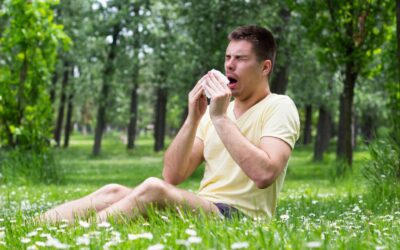What is Serotonin?
Serotonin functions as a mood regulator, aids in digestion and sleep, and impacts the way we process our emotions.
Symptoms of Low Serotonin Levels:
- Depressed mood
- Anxiety
- Panic attacks
- Aggression
- Irritability
- Trouble sleeping
- Appetite changes
- Chronic pain
- Poor memory
- Digestion issues
- Headaches
How to Increase Serotonin Levels Naturally:
1. Anti-Inflammatory Foods
Do you know the health of your gut will alter your body’s ability to produce serotonin? It’s important you eat anti-inflammatory foods that will improve the health of your gut and promote the balance of good and bad bacteria. Some of the best foods include wild-caught salmon, eggs, leafy greens, nuts, seeds, and fresh vegetables. To maximize the good bacteria in the gut, probiotic foods are also beneficial. Eating or drinking kefir, kombucha, probiotic yogurt and apple cider vinegar will help to improve the health of your gut. Healthy fats like avocado, coconut oil, extra-virgin olive oil and ghee are also going to help reduce inflammation and promote the natural production of serotonin.
2. Exercise
Research shows that exercise has beneficial effects on brain function because it modulates neurotransmitters dopamine, serotonin, and noradrenaline. These chemical messengers contribute to exercise, affecting brain function and even improving neurological disorders.
3. Get Enough Sunlight
The serotonin neurotransmitter will not be produced properly if you don’t get enough sunlight. Research suggests that there is a direct relationship between sunlight and the production of serotonin. It is believed that exposure to sunlight triggers the brain to release the chemical. This may explain, at least in part, why low levels of serotonin are associated with seasonal affective disorder (SAD).
4. Tryptophan
Research shows that reduced intake of tryptophan can lead to significant reductions in certain brain activities that boost happiness. According to a study, patients are often successful at lowering negative symptoms related to mood disorders, such as irritability, tension and restless, when they supplement with Tryptophan daily.
5. 5-HTP
5-HTP, or 5-Hydroxytryptophan, is an amino acid that is naturally produced by the body. It is used to produce serotonin, which is why 5-HTP supplements are often used to improve mood and reduce symptoms of depression. 5-HTP supplements should be used carefully and under the care of a doctor.







